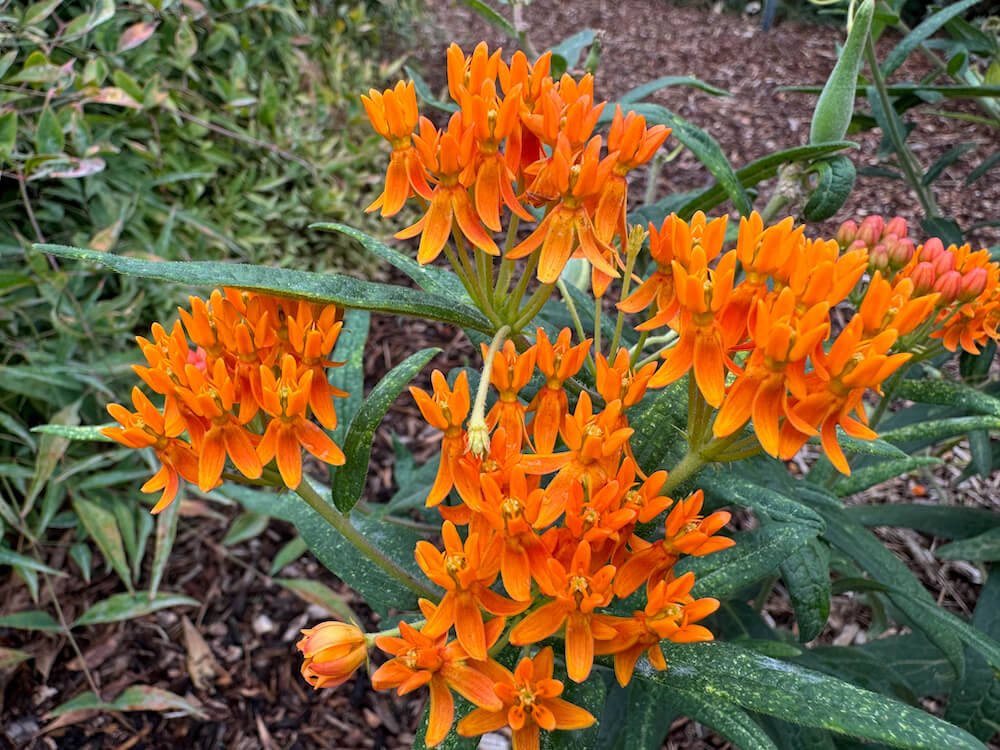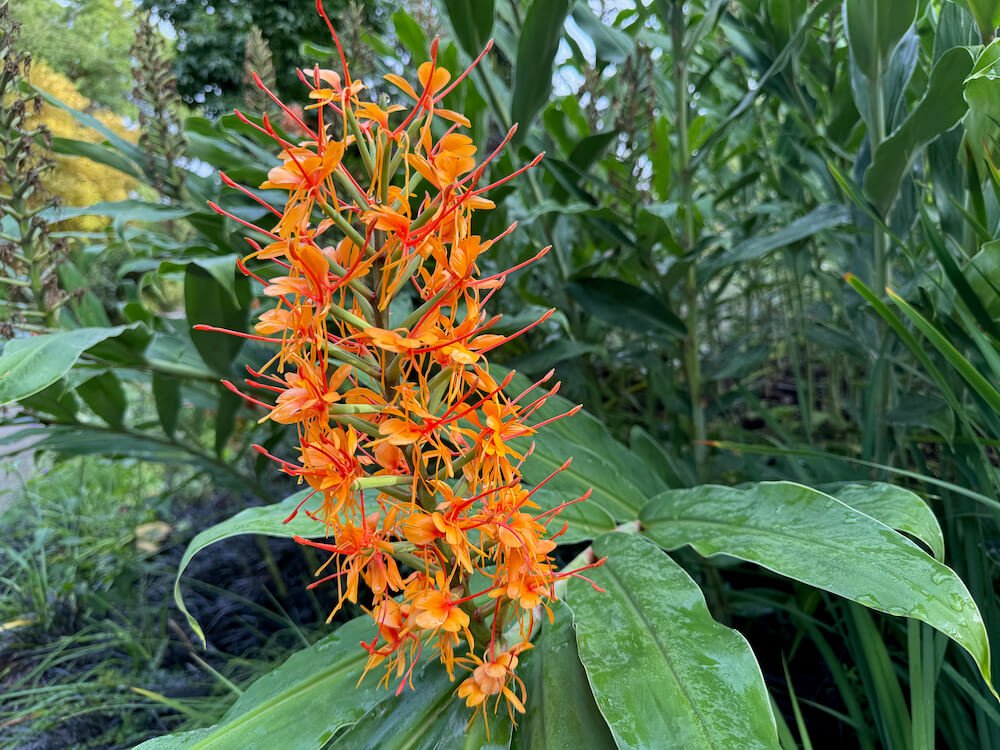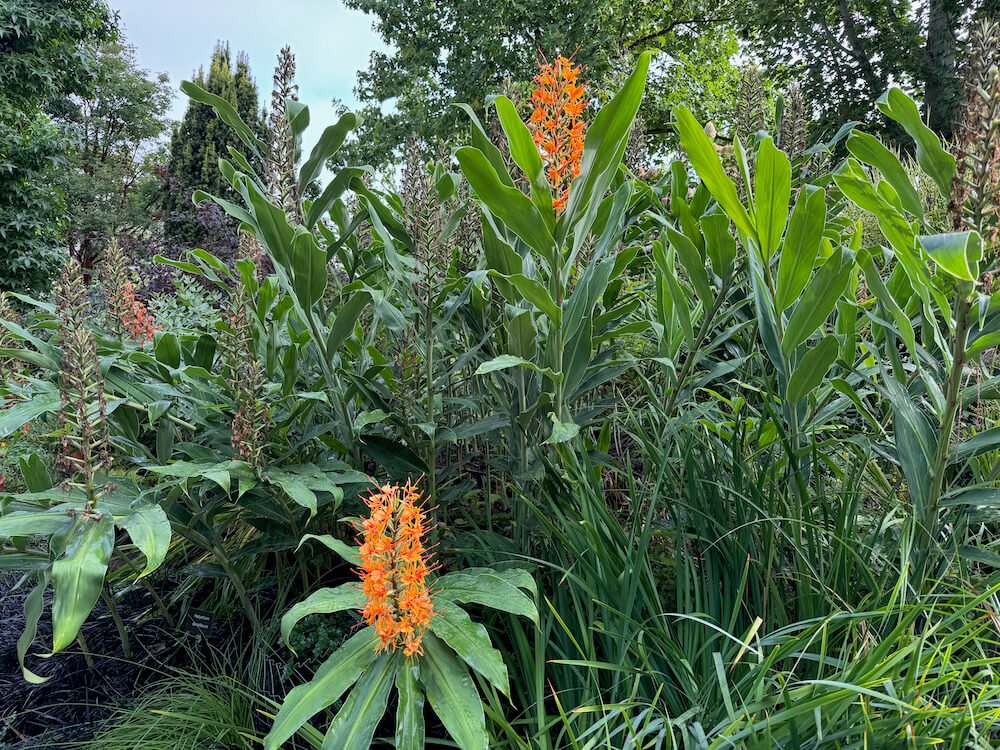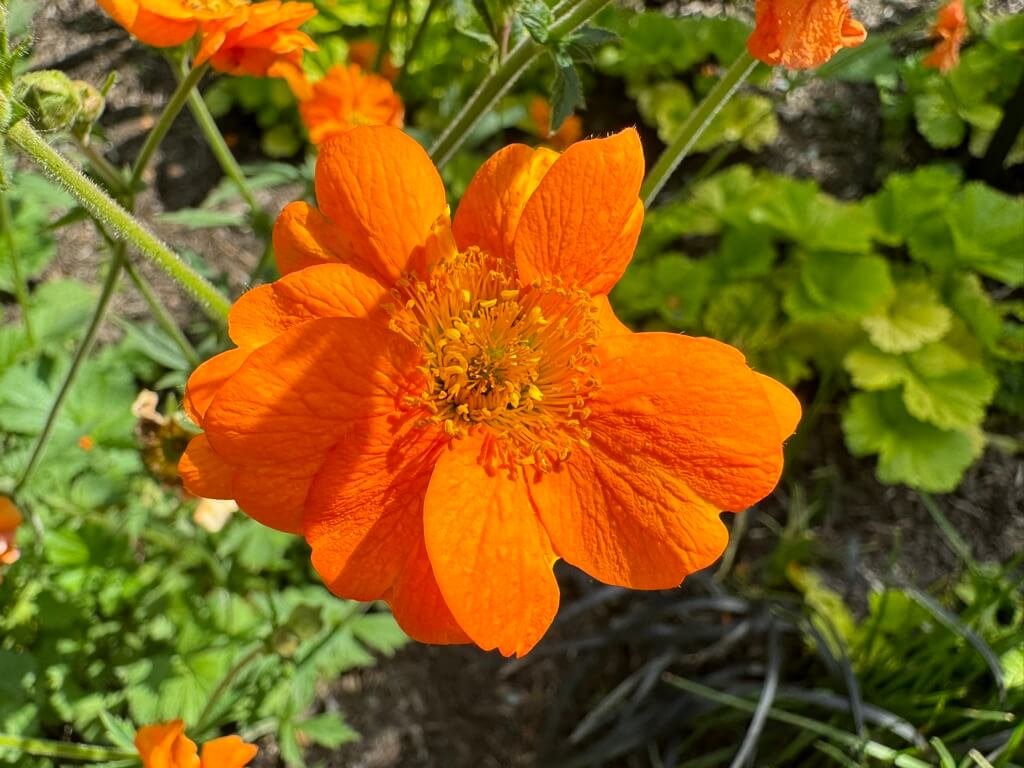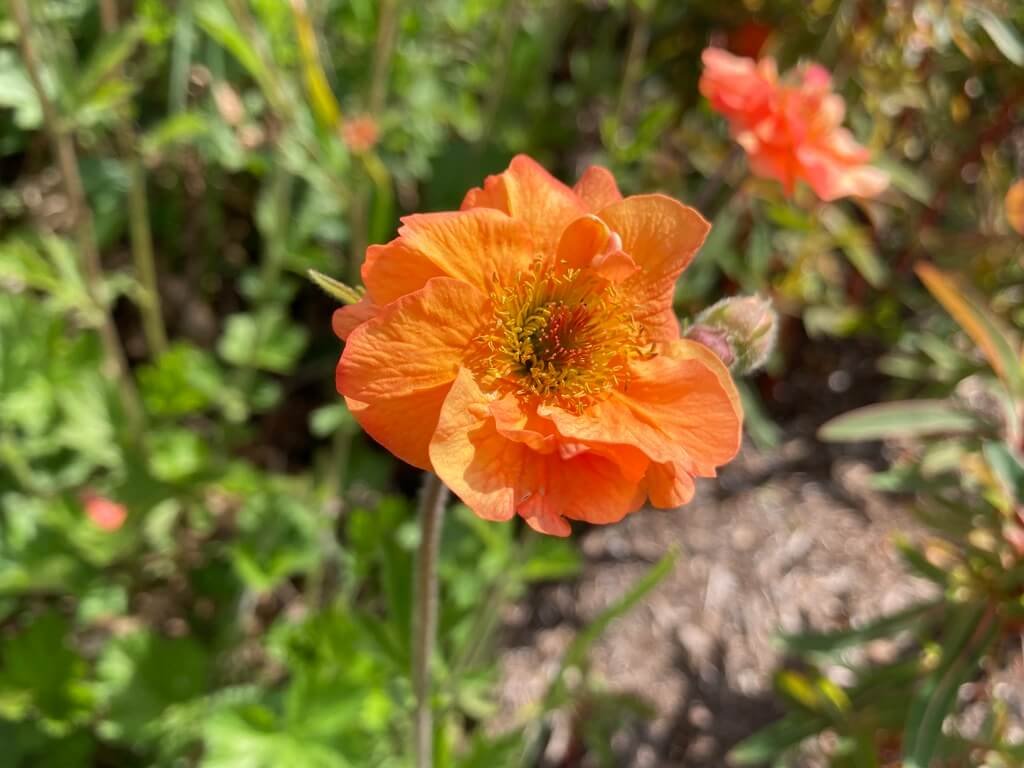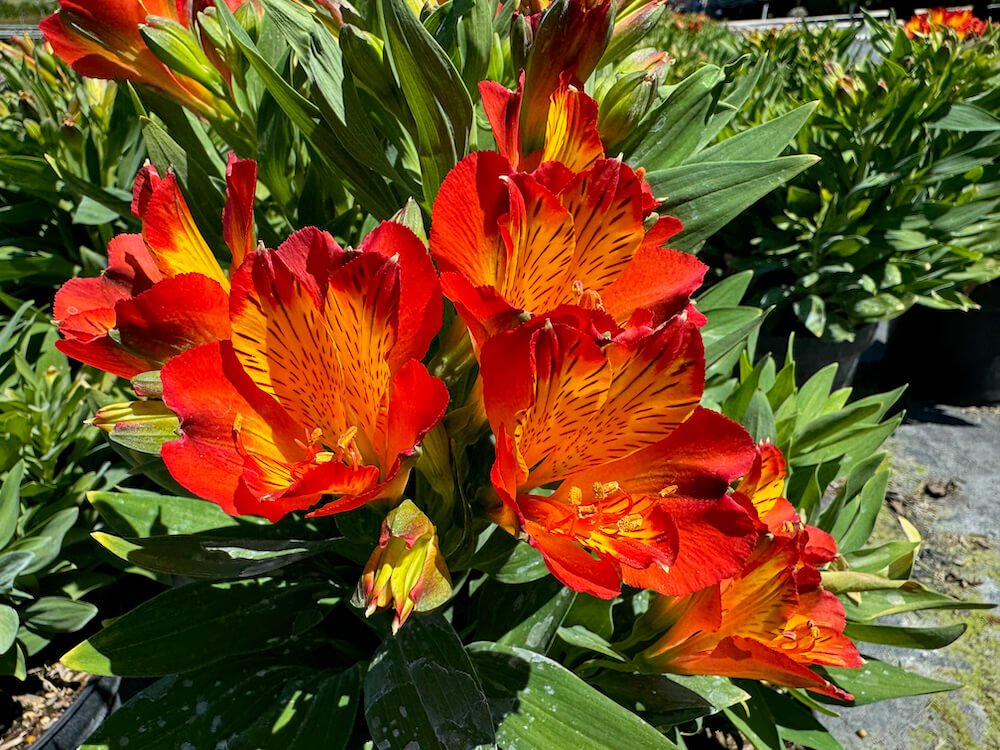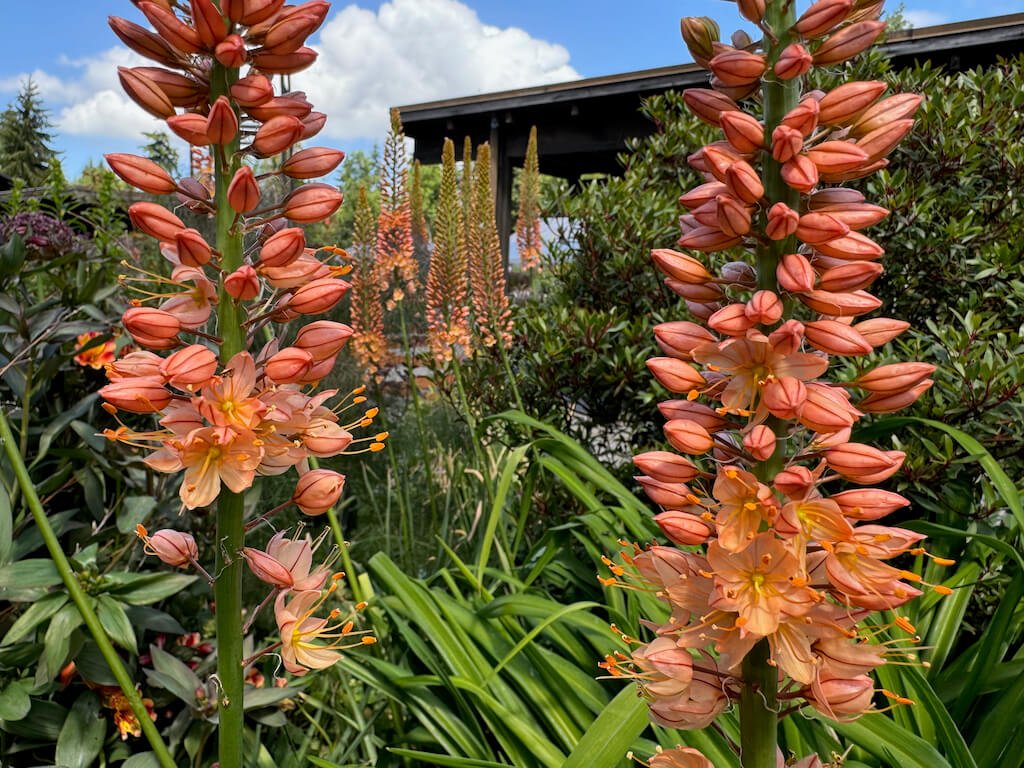 Image 1 of 3
Image 1 of 3

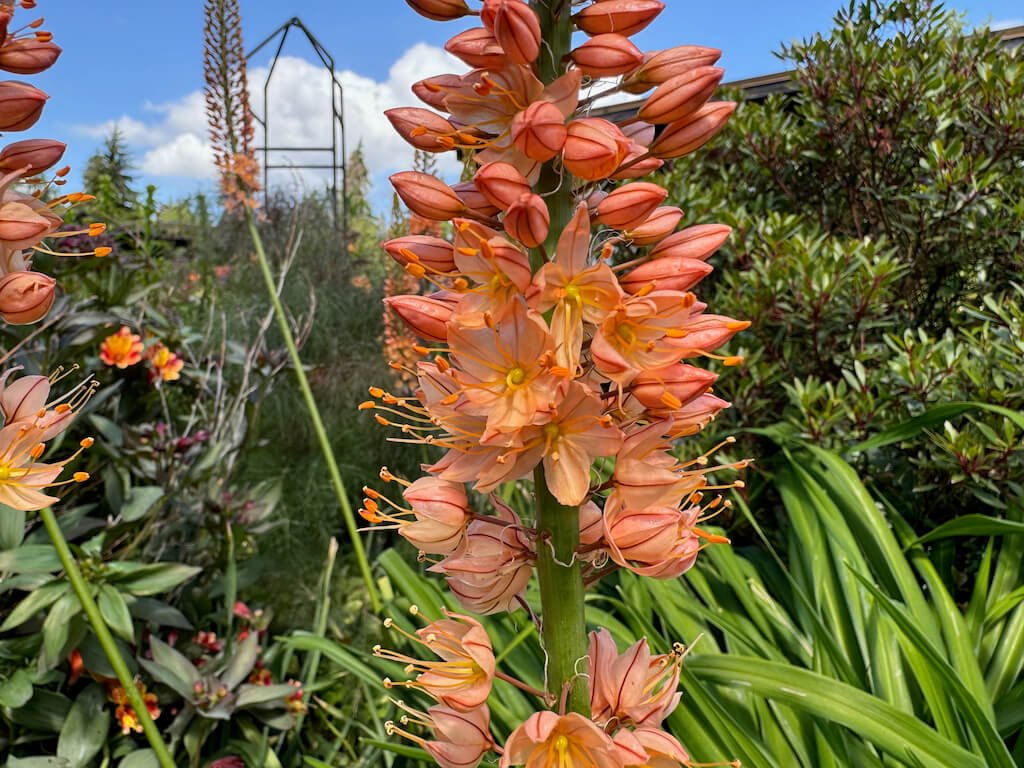 Image 2 of 3
Image 2 of 3

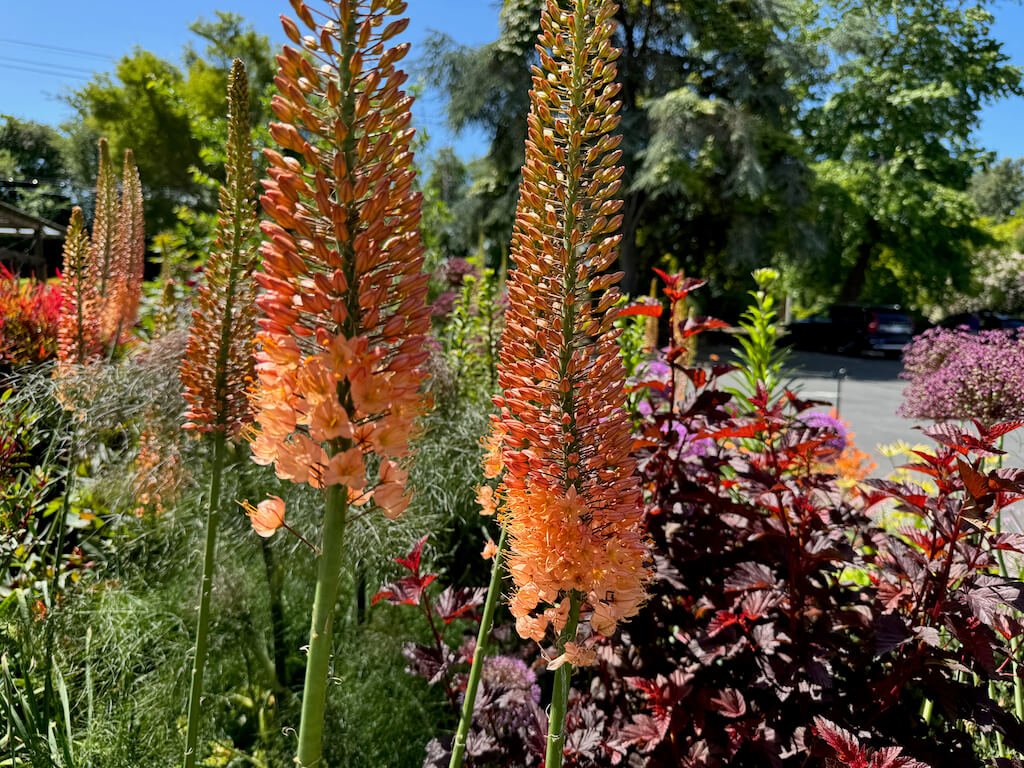 Image 3 of 3
Image 3 of 3




Eremurus x isabellinus 'Cleopatra' | Cleopatra Foxtail Lily
DESCRIPTION
Eremurus × isabellinus 'Cleopatra' is a deciduous perennial known for its tall, bottlebrush-like inflorescences. Originating from hybridization between Eremurus stenophyllus and Eremurus olgae, this cultivar showcases dense spikes of burnt orange flowers that bloom during June and July. The narrow, strap-like, bluish-green foliage forms a basal rosette, which begins to wither as the flowering stems emerge.
The towering floral spikes of 'Cleopatra' add a vertical accent to garden landscapes, making it a focal point in mixed borders or as a standalone specimen. Its bright blooms attract pollinators, adding lively movement and energy to the garden. While native to temperate regions of Asia, including areas from Turkey to China, Eremurus has been cultivated in various parts of the world for its ornamental appeal.
DESCRIPTION
Eremurus × isabellinus 'Cleopatra' is a deciduous perennial known for its tall, bottlebrush-like inflorescences. Originating from hybridization between Eremurus stenophyllus and Eremurus olgae, this cultivar showcases dense spikes of burnt orange flowers that bloom during June and July. The narrow, strap-like, bluish-green foliage forms a basal rosette, which begins to wither as the flowering stems emerge.
The towering floral spikes of 'Cleopatra' add a vertical accent to garden landscapes, making it a focal point in mixed borders or as a standalone specimen. Its bright blooms attract pollinators, adding lively movement and energy to the garden. While native to temperate regions of Asia, including areas from Turkey to China, Eremurus has been cultivated in various parts of the world for its ornamental appeal.
DESCRIPTION
Eremurus × isabellinus 'Cleopatra' is a deciduous perennial known for its tall, bottlebrush-like inflorescences. Originating from hybridization between Eremurus stenophyllus and Eremurus olgae, this cultivar showcases dense spikes of burnt orange flowers that bloom during June and July. The narrow, strap-like, bluish-green foliage forms a basal rosette, which begins to wither as the flowering stems emerge.
The towering floral spikes of 'Cleopatra' add a vertical accent to garden landscapes, making it a focal point in mixed borders or as a standalone specimen. Its bright blooms attract pollinators, adding lively movement and energy to the garden. While native to temperate regions of Asia, including areas from Turkey to China, Eremurus has been cultivated in various parts of the world for its ornamental appeal.
-
Family: Asphodelaceae
Height: 4 to 6 feet
Width: 2 to 3 feet
Foliage color: Green, with long strap-like leaves
Flower color: Burnt orange
Bloom time: Early to mid-summer
Light requirements: Full sun
Water requirements: Low to moderate
Maintenance: Low; requires well-drained soil to prevent root rot
Growing zone: USDA zones 6a to 9b
Wildlife attractors: Attracts bees, butterflies, and hummingbirds; resistant to deer and rabbits



